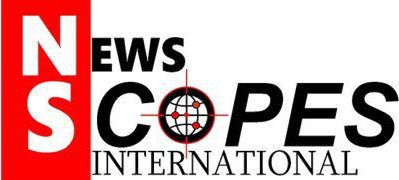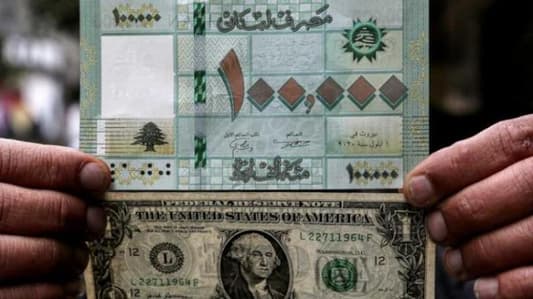**الأزمة تتفاقم… وخطر تدهور الدولار يبرز مجددًا!**
تتزايد التوقعات الاقتصادية الحالية بشأن انكماش الاقتصاد اللبناني بنسبة 6% نتيجة النزاع القائم والظروف السياسية والاجتماعية الصعبة، وهو ما يُعتبر مصدر قلق كبير للعديد من المراقبين والمحللين، نظرًا للعواقب السلبية المحتملة على استقرار سعر صرف الدولار في البلاد.
في هذا السياق، أشار الخبير الاقتصادي أنطوان فرح إلى أن “التصعيد الذي شهدته الحرب بعد اغتيال الأمين العام لحزب الله السيد حسن نصر الله، انعكس بشكل سريع وواضح على الوضع الاقتصادي والحركة الاقتصادية”.
وفي حديثه إلى “ليبانون ديبايت”، أوضح فرح: “خلال الأشهر التي سبقت هذا الحدث، كانت الحرب تقتصر على مناطق معينة في الجنوب، مما أثر على الاقتصاد بشكل مقبول، لكن التصعيد الأخير أوقع معظم القطاعات الاقتصادية في حالة من الركود. بعد أن كانت التأثيرات تقتصر على بعض القطاعات، مثل السياحة، أصبح الركود يمتد ليشمل معظم القطاعات، باستثناء قطاع المواد الغذائية وقطاع المحروقات إلى حد ما”.
وأضاف: “قدّر بعض الخبراء حجم هذا الركود بين 90-95%، مما يعني أن العديد من المؤسسات أصبحت شبه متوقفة عن العمل وتواجه تكاليف تشغيلية تهدد وجودها. وقد تضطر هذه المؤسسات في أي لحظة إلى خفض الرواتب أو تقليص عدد الموظفين، أو ربما كلا الأمرين معًا”.
وتابع: “إذا استمرت الحرب لفترة أطول، قد تعلن بعض هذه المؤسسات إفلاسها نظرًا لعدم قدرتها المالية على الصمود، وغياب إمكانية الحصول على قروض من القطاع المصرفي بعد توقف المصارف عن منح القروض”.
واعتبر أن “هذا الواقع يدفع العديد من المستثمرين وأصحاب الأعمال إلى التفكير في إغلاق مشاريعهم، مما يؤدي إلى أزمة أكبر تتمثل في زيادة معدلات البطالة. هذه الزيادة تعني انخفاض دخل الأفراد، مما يقلل من الاستهلاك، ويقود الاقتصاد إلى حلقة مفرغة من الركود. هذا الركود سينعكس سلبًا على إيرادات الدولة التي تعتمد على الحركة الاقتصادية لتحصيل الرسوم والضرائب”.
واستكمل فرح: “الحرب تؤدي إلى انخفاض قدرة المواطنين والمؤسسات على دفع الضرائب، حتى تلك التي لا تتعلق بشكل مباشر بالنشاط الاقتصادي. وهذا يسفر عن تراجع كبير في إيرادات الدولة، مما يضعها أمام تحدٍ كبير في دفع النفقات التشغيلية، خاصة رواتب موظفي القطاع العام”.
واختتم حديثه قائلاً: “مع غياب الإيرادات، يبرز التساؤل حول كيفية تمويل الدولة لعملياتها وإنفاقها على الحرب ورواتب الموظفين. فهل ستلجأ الدولة إلى طباعة المزيد من العملة؟ وإذا فعلت ذلك، فإن ضخ كميات كبيرة من الليرة في السوق سيؤدي إلى انهيار جديد في سعر الصرف، مما يضعنا أمام خطر انهيار العملة مجددًا”.
وفي حال لم يتم ذلك، ولجأت الدولة إلى سحب الدولارات من مصرف لبنان، يعتبر فرح أن “الخطر سيكون أكبر. أولاً، سيتم السحب من الدولارات على حساب الملكية الخاصة للمودعين. ثانيًا، سيصعب إيجاد حل لقضية المودعين بعد انتهاء الأزمة”.
المصدر: ليبانون ديبايت
**The Crisis Escalates… The Danger of Dollar Collapse Resurfaces!**
Current economic forecasts indicate a potential contraction of the Lebanese economy by 6% due to the ongoing war and the difficult political and social conditions. This contraction raises significant concerns among many observers and analysts, as it could have dire implications for the stability of the dollar exchange rate in the country.
In this context, economist Antoine Farah confirmed that “the escalating trend of the war following the assassination of Hezbollah's Secretary-General, Hassan Nasrallah, has directly and swiftly impacted the economic situation and economic activity.”
In an interview with “Lebanon Debate,” Farah stated, “In the months leading up to this event, the war was limited to a partial nature in the south and had a manageable impact on the economy. However, the recent escalation has caused most economic sectors to face a state of stagnation and recession. What used to affect only certain sectors, like tourism, is now spreading to almost all sectors, except for food and fuel to some extent.”
He added, “Some estimated the extent of this stagnation at around 90-95%, indicating that many institutions have become almost inactive, facing operational costs that threaten their sustainability. These institutions may soon have to reduce salaries, cut staff, or possibly both.”
He continued, “If the war prolongs, some of these institutions may declare bankruptcy due to their financial inability to withstand the situation, compounded by the lack of access to loans from the banking sector after the cessation of lending operations.”
He noted that “this reality leads many investors and business owners to consider closing their operations, resulting in a larger crisis characterized by rising unemployment rates. This increase in unemployment translates to lower incomes for individuals, consequently reducing consumption, which plunges the economy into a vicious cycle of recession. This recession will negatively affect state revenues, which rely on economic activity for tax collection.”
Farah further stated, “The war diminishes the ability of citizens and businesses to pay taxes, even those not directly related to economic activity. This results in a substantial decline in state revenues, posing a significant challenge in covering operational costs, especially the salaries of public sector employees.”
He concluded: “In light of the absence of revenues, the question arises regarding how the state will finance its operations and its expenditures on the war and employee salaries. Will the state resort to printing currency? If it does so, injecting large amounts of the local currency into the market will lead to a new collapse in the exchange rate, placing us at risk of another currency breakdown.”
If this does not occur, and the state resorts to withdrawing dollars from the Central Bank of Lebanon, Farah considers that “the danger will be greater. First, withdrawals will come at the expense of depositors' private ownership. Secondly, it will become challenging to find a solution for the depositors' issue after the crisis concludes.”
Translated by economyscopes team







